Pankaj Rajan
Alexa, Let's Work Together: Introducing the First Alexa Prize TaskBot Challenge on Conversational Task Assistance
Sep 13, 2022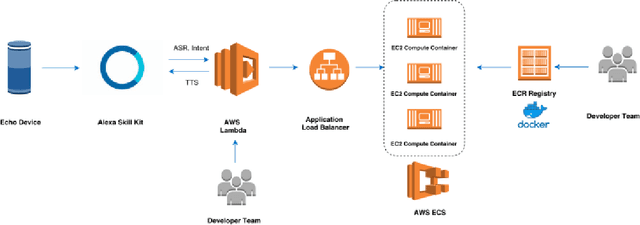

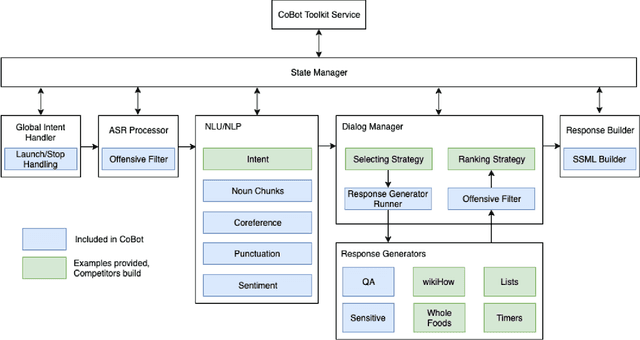
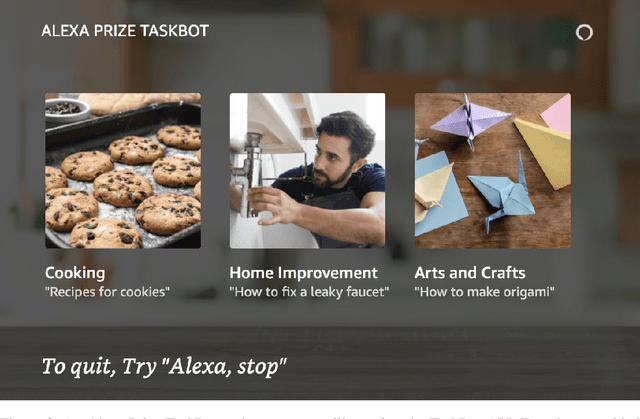
Abstract:Since its inception in 2016, the Alexa Prize program has enabled hundreds of university students to explore and compete to develop conversational agents through the SocialBot Grand Challenge. The goal of the challenge is to build agents capable of conversing coherently and engagingly with humans on popular topics for 20 minutes, while achieving an average rating of at least 4.0/5.0. However, as conversational agents attempt to assist users with increasingly complex tasks, new conversational AI techniques and evaluation platforms are needed. The Alexa Prize TaskBot challenge, established in 2021, builds on the success of the SocialBot challenge by introducing the requirements of interactively assisting humans with real-world Cooking and Do-It-Yourself tasks, while making use of both voice and visual modalities. This challenge requires the TaskBots to identify and understand the user's need, identify and integrate task and domain knowledge into the interaction, and develop new ways of engaging the user without distracting them from the task at hand, among other challenges. This paper provides an overview of the TaskBot challenge, describes the infrastructure support provided to the teams with the CoBot Toolkit, and summarizes the approaches the participating teams took to overcome the research challenges. Finally, it analyzes the performance of the competing TaskBots during the first year of the competition.
Understanding How People Rate Their Conversations
Jun 01, 2022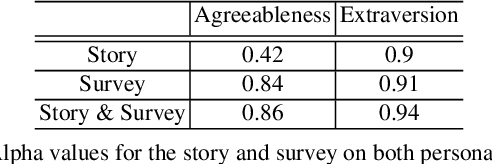
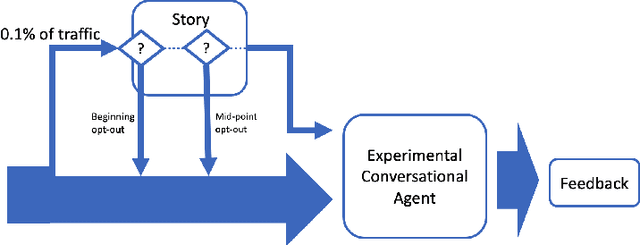

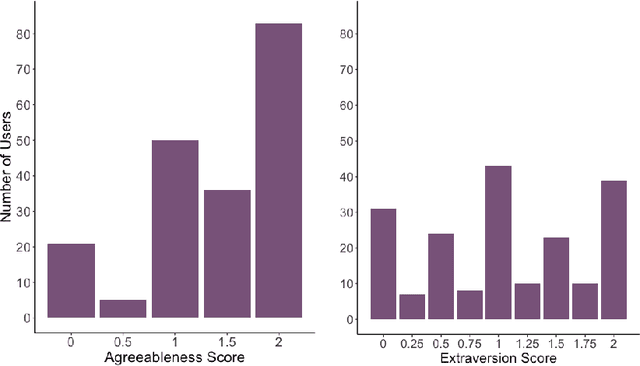
Abstract:User ratings play a significant role in spoken dialogue systems. Typically, such ratings tend to be averaged across all users and then utilized as feedback to improve the system or personalize its behavior. While this method can be useful to understand broad, general issues with the system and its behavior, it does not take into account differences between users that affect their ratings. In this work, we conduct a study to better understand how people rate their interactions with conversational agents. One macro-level characteristic that has been shown to correlate with how people perceive their inter-personal communication is personality. We specifically focus on agreeableness and extraversion as variables that may explain variation in ratings and therefore provide a more meaningful signal for training or personalization. In order to elicit those personality traits during an interaction with a conversational agent, we designed and validated a fictional story, grounded in prior work in psychology. We then implemented the story into an experimental conversational agent that allowed users to opt-in to hearing the story. Our results suggest that for human-conversational agent interactions, extraversion may play a role in user ratings, but more data is needed to determine if the relationship is significant. Agreeableness, on the other hand, plays a statistically significant role in conversation ratings: users who are more agreeable are more likely to provide a higher rating for their interaction. In addition, we found that users who opted to hear the story were, in general, more likely to rate their conversational experience higher than those who did not.
Multi-Sentence Knowledge Selection in Open-Domain Dialogue
Mar 01, 2022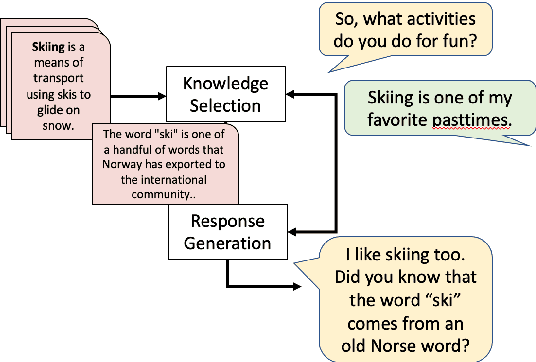
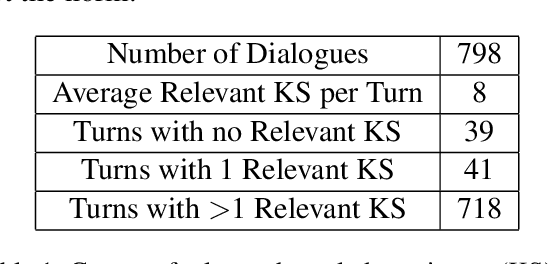

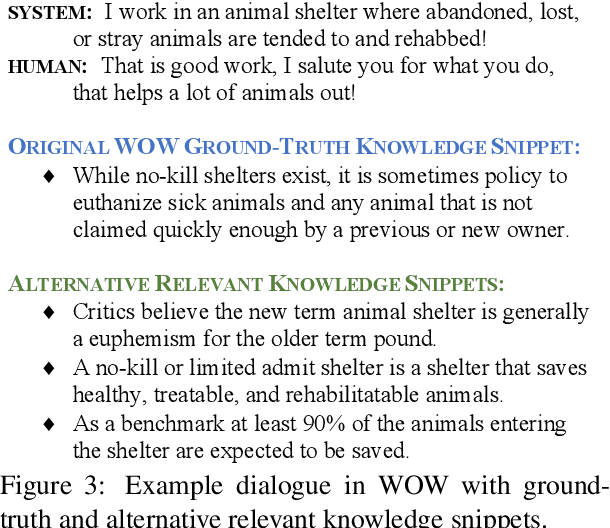
Abstract:Incorporating external knowledge sources effectively in conversations is a longstanding problem in open-domain dialogue research. The existing literature on open-domain knowledge selection is limited and makes certain brittle assumptions on knowledge sources to simplify the overall task (Dinan et al., 2019), such as the existence of a single relevant knowledge sentence per context. In this work, we evaluate the existing state of open-domain conversation knowledge selection, showing where the existing methodologies regarding data and evaluation are flawed. We then improve on them by proposing a new framework for collecting relevant knowledge, and create an augmented dataset based on the Wizard of Wikipedia (WOW) corpus, which we call WOW++. WOW++ averages 8 relevant knowledge sentences per dialogue context, embracing the inherent ambiguity of open-domain dialogue knowledge selection. We then benchmark various knowledge ranking algorithms on this augmented dataset with both intrinsic evaluation and extrinsic measures of response quality, showing that neural rerankers that use WOW++ can outperform rankers trained on standard datasets.
 Add to Chrome
Add to Chrome Add to Firefox
Add to Firefox Add to Edge
Add to Edge